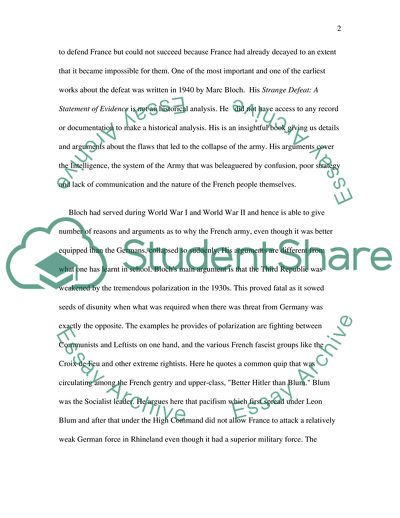Cite this document
(Strange Defeat by Marc Bloch Book Report/Review, n.d.)
Strange Defeat by Marc Bloch Book Report/Review. https://studentshare.org/literature/1728307-strange-defeat
Strange Defeat by Marc Bloch Book Report/Review. https://studentshare.org/literature/1728307-strange-defeat
(Strange Defeat by Marc Bloch Book Report/Review)
Strange Defeat by Marc Bloch Book Report/Review. https://studentshare.org/literature/1728307-strange-defeat.
Strange Defeat by Marc Bloch Book Report/Review. https://studentshare.org/literature/1728307-strange-defeat.
“Strange Defeat by Marc Bloch Book Report/Review”. https://studentshare.org/literature/1728307-strange-defeat.


